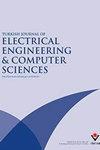网络流连通性行为的图形分析
IF 1.5
4区 计算机科学
Q4 COMPUTER SCIENCE, ARTIFICIAL INTELLIGENCE
Turkish Journal of Electrical Engineering and Computer Sciences
Pub Date : 2019-04-01
DOI:10.3906/ELK-1808-148
引用次数: 5
摘要
基于图的方法被广泛用于分析网络流连通性行为,其目的是了解网络事件的影响和模式。然而,现有的方法存在缺乏连接行为信息和丢失网络事件识别的问题。在本文中,我们提出了网络流连接图(NFCGs)来捕获网络流行为,以从网络实体中建模社会行为。给定一组流,NFCG的边缘是通过连接相互通信的成对主机来生成的。为了保留更多关于网络流的信息,我们还将节点排序值和边权向量嵌入到原始NFCG中。在此基础上,提出了基于nfcg的网络流连通性行为分析框架。该框架包括三个模块:基于多样化过滤规则的图化简模块、基于定量或半定量分析的图特征分析模块和基于多种图挖掘方法的图结构分析模块。此外,我们通过使用真实的网络流量数据来评估基于nfgs的框架。结果表明,nfcg和所提出的框架不仅可以在网络行为分析方面取得良好的性能,而且对进一步的算法实现具有良好的可扩展性。本文章由计算机程序翻译,如有差异,请以英文原文为准。
Graph analysis of network flow connectivity behaviors
Graph-based approaches have been widely employed to facilitate in analyzing network flow connectivity behaviors, which aim to understand the impacts and patterns of network events. However, existing approaches suffer from lack of connectivity-behavior information and loss of network event identification. In this paper, we propose network flow connectivity graphs (NFCGs) to capture network flow behavior for modeling social behaviors from network entities. Given a set of flows, edges of a NFCG are generated by connecting pairwise hosts who communicate with each other. To preserve more information about network flows, we also embed node-ranking values and edge-weight vectors into the original NFCG. After that, a network flow connectivity behavior analysis framework is present based on NFCGs. The proposed framework consists of three modules: a graph simplification module based on diversified filtering rules, a graph feature analysis module based on quantitative or semiquantitative analysis, and a graph structure analysis module based on several graph mining methods. Furthermore, we evaluate our NFCG-based framework by using real network traffic data. The results show that NFCGs and the proposed framework can not only achieve good performance on network behavior analysis but also exhibit excellent scalability for further algorithmic implementations.
求助全文
通过发布文献求助,成功后即可免费获取论文全文。
去求助
来源期刊

Turkish Journal of Electrical Engineering and Computer Sciences
COMPUTER SCIENCE, ARTIFICIAL INTELLIGENCE-ENGINEERING, ELECTRICAL & ELECTRONIC
CiteScore
2.90
自引率
9.10%
发文量
95
审稿时长
6.9 months
期刊介绍:
The Turkish Journal of Electrical Engineering & Computer Sciences is published electronically 6 times a year by the Scientific and Technological Research Council of Turkey (TÜBİTAK)
Accepts English-language manuscripts in the areas of power and energy, environmental sustainability and energy efficiency, electronics, industry applications, control systems, information and systems, applied electromagnetics, communications, signal and image processing, tomographic image reconstruction, face recognition, biometrics, speech processing, video processing and analysis, object recognition, classification, feature extraction, parallel and distributed computing, cognitive systems, interaction, robotics, digital libraries and content, personalized healthcare, ICT for mobility, sensors, and artificial intelligence.
Contribution is open to researchers of all nationalities.
 求助内容:
求助内容: 应助结果提醒方式:
应助结果提醒方式:


